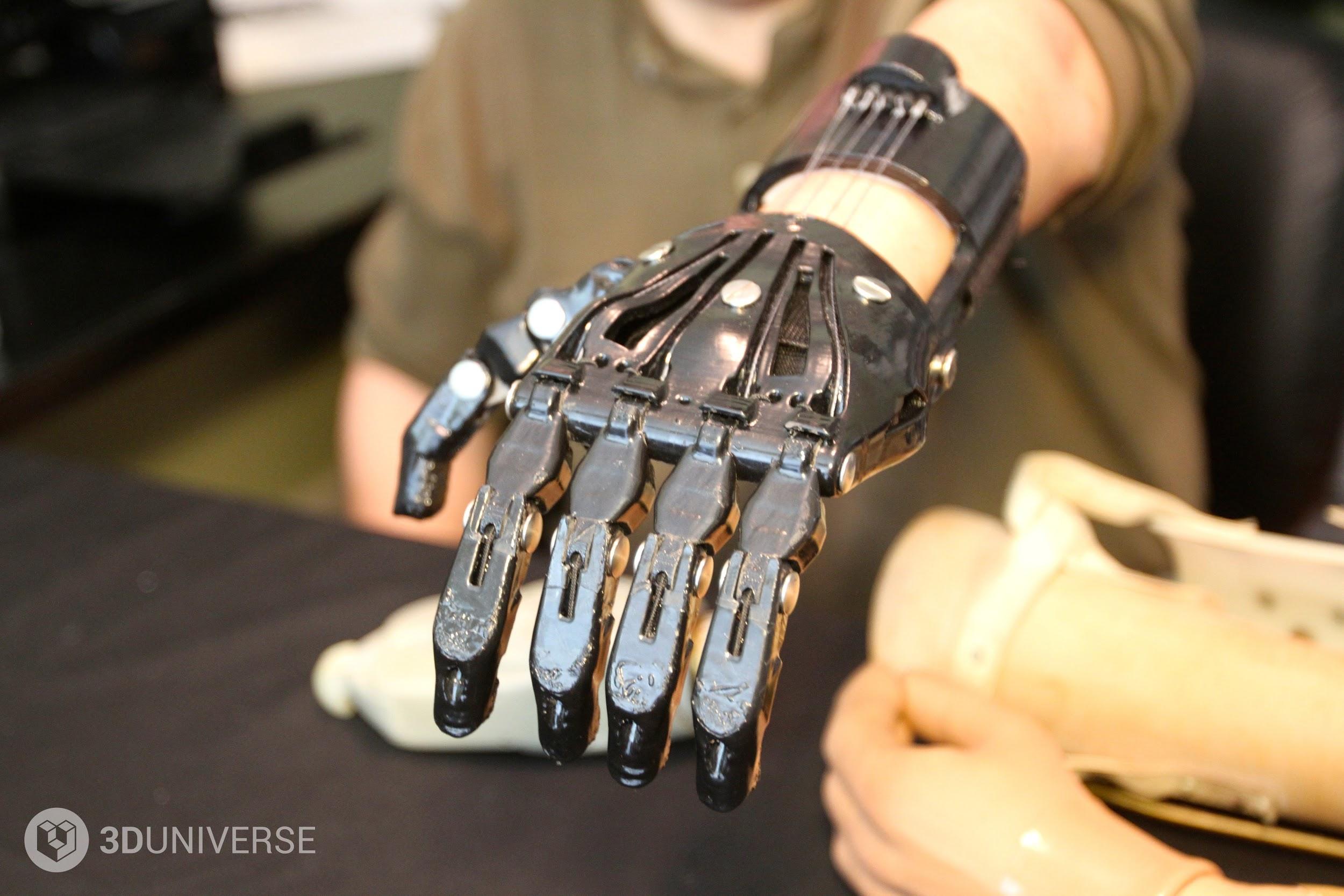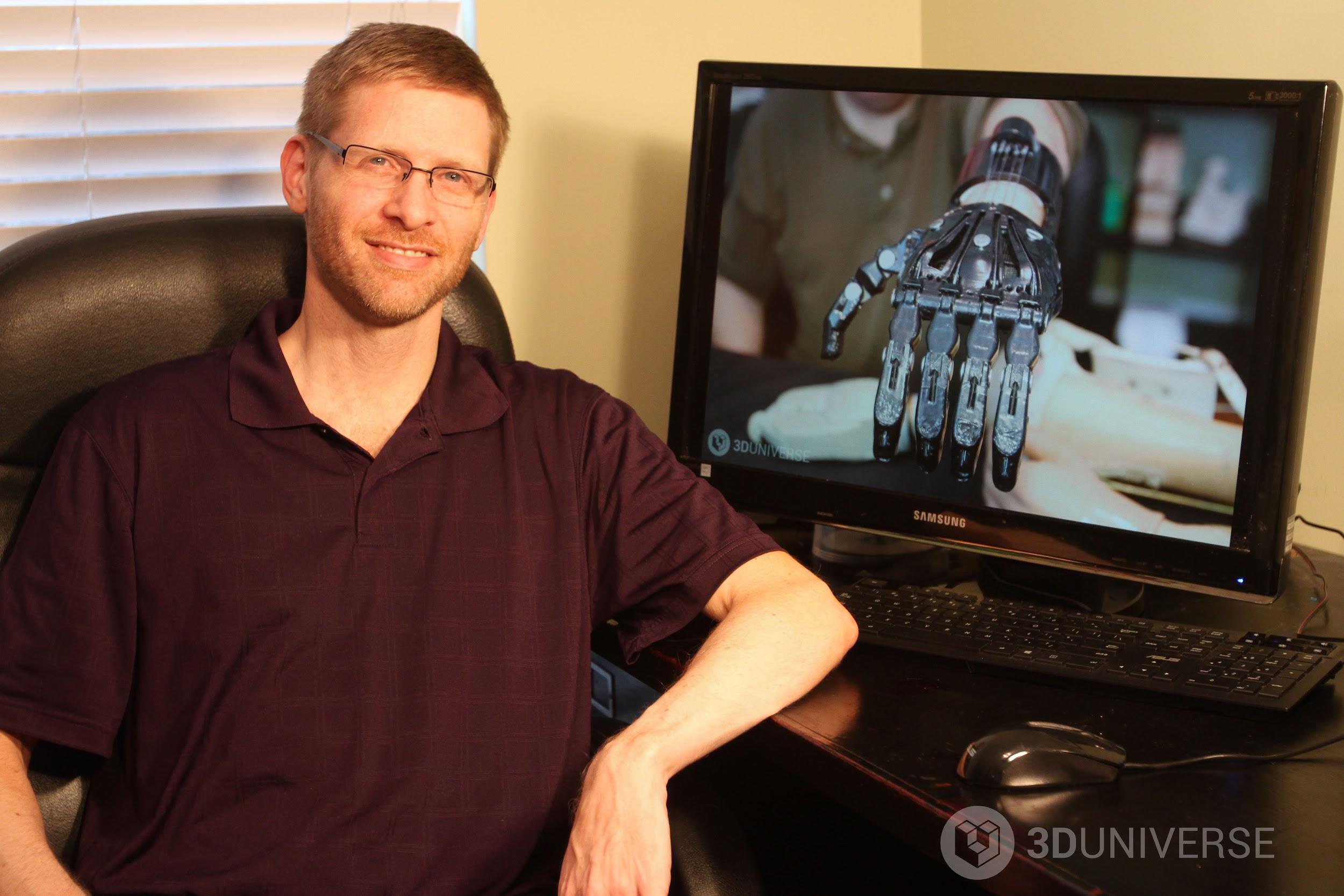How a 3D Printing Venture Was Established
Meet Jeremy Simon, a passionate entrepreneur and one of the founders of 3D Universe, a company on a mission to make 3D printing business and digital fabrication accessible to everyone—whether you’re a hobbyist or a professional. Founded in 2013 with co-founders Aleks Jones and Alina Dragu, 3D Universe operates as an e-commerce platform offering a range of 3D printers, supplies, and assembly kits, along with providing support to the global volunteer community e-NABLE, which focuses on delivering free 3D-printed prosthetic devices to those in need. Today, this company generates an impressive $300,000 per month in revenue, achieving a staggering 300% growth in just three years.
| About | Details |
|---|---|
| Founder | Jeremy Simon |
| Company | 3D Universe, LLC |
| Revenue | $300K/month |
| Location | U.S. (warehouse-based) |
| Employees | 4 |
| Launched | 2013 |
Business Origin Story
Jeremy’s journey began in 2012 when he sold his shares in a consulting firm and dove into the fascinating world of 3D printing business. His initial curiosity led him to Thingiverse, a hub of 3D designs, where he stumbled upon a prosthetic hand design. This discovery connected him to e-NABLE, a volunteer community using 3D printers to create life-changing prosthetic devices.
One of Jeremy’s earliest impactful projects involved creating a prosthetic hand for Jose Delgado, a local man born without fingers on one hand. Jeremy’s video showcasing Jose’s new hand went viral, earning media attention from platforms like Fox News. The exposure helped e-NABLE expand rapidly, and it inspired Jeremy to build 3D Universe alongside his business partners, seizing the rising popularity of 3D printing.
Starting small with a basic e-commerce site and a handful of products, 3D Universe steadily grew. A pivotal moment came in 2014 when the company became one of the first authorized resellers for Ultimaker, a leading desktop 3D printer manufacturer. With a solid foundation and the right partnerships, the business took off.
While 3D Universe sells products from other manufacturers, such as Ultimaker printers, the company also develops custom offerings to serve the e-NABLE community better. One of their standout innovations is the e-NABLE assembly materials kits, which include all the necessary components for creating prosthetic devices.
These kits were born out of a desire to simplify the process for volunteers, who previously had to source materials separately in bulk quantities. After thorough testing and sourcing cost-effective supplies, the company has distributed over 8,000 kits worldwide, significantly boosting the production of free prosthetics.
Another significant contribution is e-NABLE Web Central, a custom web application that connects volunteers with prosthetic recipients. This platform currently supports about 2,000 active users, continuously evolving with new features to streamline the matching process.
Business Launch Strategy
An e-commerce website was launched in 2013, with a small selection of 3D printers being offered. Existing business incomes were leveraged, allowing business development without financial stress.

In 2014, an authorized reseller status for Ultimaker products was achieved in the United States. Significant business growth was experienced as a result. Ultimaker’s reputation for producing reliable, high-quality 3D printers was leveraged, especially as previous market leaders were experiencing decline.
Product Development Process
Some products were purchased from manufacturers like Ultimaker. Custom products were also manufactured. After extensive e-NABLE community engagement, challenges in prosthetic device assembly were identified.
Assembly material kits were developed to simplify prosthetic device production. Comprehensive testing was conducted to determine material requirements. Cost-effective bulk material sourcing was implemented, and kit preparation was outsourced.
Over 8,000 assembly kits have been distributed worldwide. A web application called e-NABLE Web Central was developed to address volunteer-recipient matching challenges.
Online Store Launch
Thanks to Jeremy’s co-founder’s technical expertise, creating the 3D Universe e-commerce site required no external help. They chose Shopify as their platform for its flexibility, security, and ease of integration with various tools.
Starting with minimal upfront investment, the founders gradually scaled their operations. Their big break came with the addition of Ultimaker products, which accelerated growth. By focusing on providing high-quality products and exceptional customer service, 3D Universe established itself as a trusted name in the 3D printing business space.
Marketing and Customer Acquisition
Google Ads: The company relies heavily on Google Ads to attract high-intent customers, experimenting with text and shopping campaigns to fine-tune ad performance. Regular monitoring of key metrics like cost-per-click (CPC) and return on investment (ROI) ensures efficient ad spend.
Social Media & YouTube: Platforms like Facebook, Instagram, and YouTube help boost organic traffic. Product introduction videos, such as those for the Ultimaker S5, not only generate views but also drive customers to their e-commerce site.
Email Marketing: A robust email list of over 10,000 subscribers allows for consistent engagement through weekly updates, strengthening relationships with existing customers.
Targeted Markets: Focusing on specific verticals, like educational institutions, has helped 3D Universe build a strong reputation and grow through word-of-mouth referrals.
Business Performance and Operations
Profitability was achieved in the second business year. Gross margins of approximately 28% were maintained. Net profit margins averaged around 12%. An email distribution list of over 10,000 customers was developed.
All sales were conducted through the e-commerce site. A small, efficient team processed daily orders. A self-owned warehouse was utilized to minimize operational costs.
Future plans include adding higher-end product offerings with increased selling prices.
| Tools | Platforms |
|---|---|
| E-commerce | Shopify |
| Email Marketing | ActiveCampaign |
| Customer Service | ZenDesk |
| Reviews | YotPo |
| Social Media | YouTube, Facebook, Twitter, Instagram, Pinterest |
| Productivity | WhatsApp, Zoom, GoogleDrive |
| Payments | Riskified |
| Analytics | ProfitWise |
| Advertising | GoogleAds |
| Inventory Management | Custom-developed (In-house tracking system) |
Lessons Learned Along the Way
Jeremy emphasizes a few key takeaways from his entrepreneurial journey:
- Keep Things In-House: Third-party services for tasks like Google Ads management didn’t deliver the expected value, proving that understanding your products and audience often yields better results.
- Test Products First: Offering only well-tested products reduces returns and builds customer trust.
- Customer Service Matters: Exceptional service and positive reviews (collected through tools like YotPo) have been instrumental in building loyalty and trust.
The Future of 3D Universe
With a steady 12% net profit margin and a growing customer base, 3D Universe is thriving. Their small but efficient team ensures smooth daily operations, while their owned warehouse space keeps overhead costs low. Looking ahead, Jeremy and his team plan to introduce higher-end products and continue innovating to stay ahead in the competitive e-commerce landscape.


